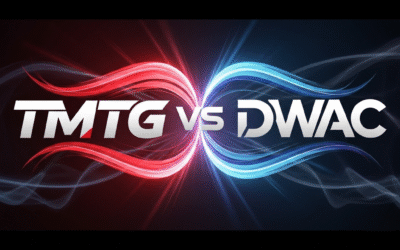Own Controversy: 3 Reasons the F1 Title Fight Stays Clean
Own Controversy: 3 Reasons the F1 Title Fight Stays Clean
The air in Formula 1 is electric. Two drivers, locked in a season-long battle, head into the final races with the championship hanging by a thread. For seasoned fans, this scenario triggers a familiar anxiety, a ghost of championships past: Senna vs. Prost in Suzuka, Schumacher vs. Hill in Adelaide, Hamilton vs. Verstappen in Abu Dhabi. These legendary rivalries are forever marked by collisions that decided the title. But as the pressure mounts in the modern era, the calculus has changed. The days of a blatant, title-deciding crash are likely over, as today’s drivers cannot afford to own controversy in the same way their predecessors did.
While the racing will undoubtedly be aggressive and push the limits of sportsmanship, several powerful factors now work to keep the fight on the track and out of the stewards’ room. Here are three key reasons why the F1 title fight is poised to stay clean.
Table of Contents
1. The FIA’s Heavy Hand and Sporting Code Scrutiny
The single greatest deterrent against a championship-deciding collision is the governing body itself. The FIA has evolved significantly since the days when a double DNF could be a viable, if cynical, strategy. The modern FIA Sporting Regulations provide the race stewards with a fearsome arsenal of penalties that go far beyond a simple time penalty or grid drop for the next race.
The ultimate weapon, and one the FIA has explicitly warned it is willing to use, is a championship points deduction. Following the intense and often bitter 2021 season, F1’s race director reminded teams and drivers that “unsportsmanlike” driving could result in points being stripped away. This fundamentally changes a driver’s risk-reward calculation.
In the past, a driver leading the championship could theoretically take out their only rival, securing the title if both failed to finish. Today, such an act would almost certainly be deemed deliberate and unsportsmanlike. The likely outcome? The offending driver would not only fail to score points in that race but could also see their entire championship advantage wiped out by a stewards’ decision. This precedent means that a driver who tries to win by crashing would, in all likelihood, lose everything.
This power was codified to ensure the integrity of the sport’s biggest prize. Drivers are now acutely aware that any attempt to manufacture an outcome will be scrutinized and could lead to the ultimate penalty, as detailed in the official FIA International Sporting Code.
2. Why Modern Drivers Can’t Afford to Own Controversy
Beyond the official rulebook, the court of public and corporate opinion has never been more powerful. A modern Formula 1 driver is more than just an athlete; they are a global brand, a CEO of their own multi-million dollar image. In an era dominated by 24/7 social media and behind-the-scenes docuseries like Netflix’s Drive to Survive, every action is magnified and analyzed by millions.
For a driver to deliberately cause a crash to win a title would be commercial suicide. The backlash from fans, media, and, most importantly, sponsors would be immediate and severe. Brands like Mercedes, Red Bull, Ferrari, and their high-profile partners invest hundreds of millions of dollars and expect their representatives to embody professionalism and fair play. Forcing a rival off the track would not be seen as a “win at all costs” moment of brilliance; it would be a stain on the driver’s character and a PR nightmare for the team and its sponsors.
A driver who chose this path would be forced to own controversy in a way that could tarnish their legacy permanently. Unlike some historical figures whose aggressive moves have been romanticized over time, a modern driver would be universally condemned. This could jeopardize contract negotiations, future team prospects, and lucrative personal endorsements. The financial and reputational cost is simply too high. You can read more about the fallout from past incidents in our analysis of the 2021 Abu Dhabi GP.
3. Technical and On-Track Advancements
The third pillar preventing a title-deciding smashup is technology. It is exponentially harder to get away with a deliberate act of foul play in 2025 than it was in 1990. Every F1 car is a mobile data center, recording an unprecedented amount of data on every millisecond of its performance.
If a collision occurs, stewards don’t just have a few TV camera angles to review. They have access to:
- Steering angle data: Did the driver turn into their rival or fail to apply counter-steer?
- Throttle and brake inputs: Did the driver unexpectedly brake or accelerate at a strange point on the track?
- Onboard cameras: High-definition cameras facing forward, backward, and at the driver provide clear evidence of intent.
This forensic level of analysis makes it nearly impossible to disguise a deliberate move as a “racing incident.” A driver knows that if they try something, the data will tell the story, and there will be nowhere to hide. The potential to be so clearly exposed is a massive deterrent in itself.
Furthermore, track design has also played a role. While street circuits remain a challenge, many modern tracks feature vast tarmac runoff areas. This design philosophy, focused on safety, has a side effect: it makes a race-ending collision less likely. A nudge or a clash of wheels that might have sent cars into a gravel trap or wall in a previous era may now simply result in both drivers running wide and rejoining the track, albeit having lost time. This reduces the incentive for an “all-or-nothing” move, as the chance of it successfully eliminating a rival is much lower.
Conclusion: A Battle of Pure Skill
As the championship fight reaches its climax, expect to see breathtakingly close and aggressive racing. Drivers will push each other to the absolute limit, wheels just millimeters apart. But the confluence of strict FIA oversight, the crushing weight of public and sponsor opinion, and the unblinking eye of technology has created a powerful safety net for the sport’s integrity.
The potential for a driver to own controversy on the scale of a championship-deciding crash has become an unacceptable risk. Instead of a war of attrition, we are set to witness a war of pure talent—a fitting way to crown a Formula 1 World Champion.
“`








